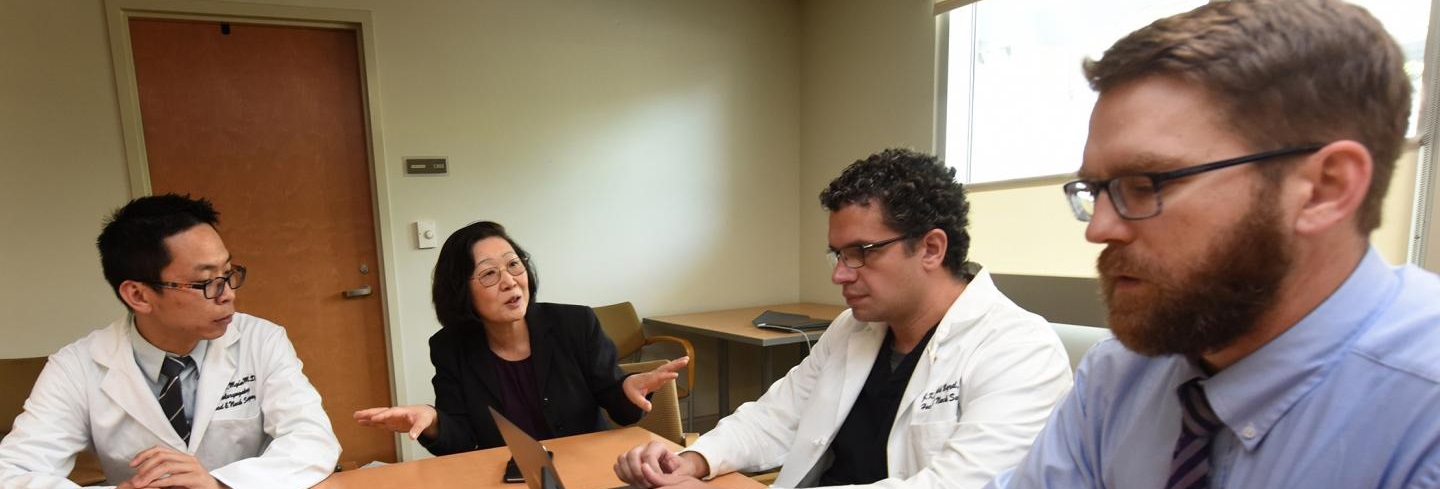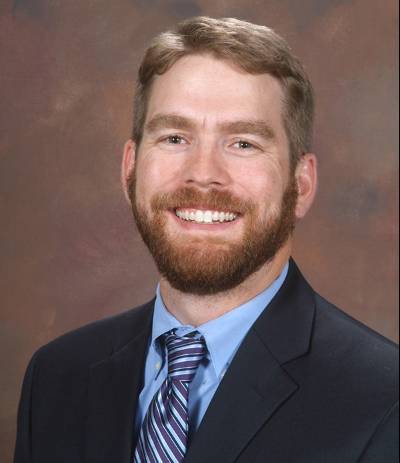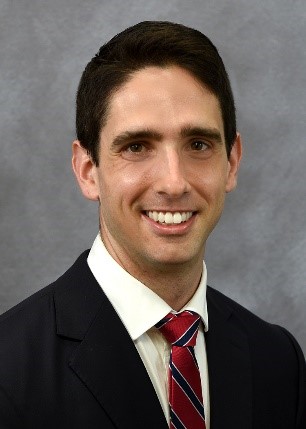
Head & Neck Surgery
The division of head and neck surgery provides comprehensive treatment of benign and malignant tumors of the head and neck.
The section specializes in the care of patients with cancer of the larynx, oral cavity, oropharynx, sinuses and nasal cavity, salivary glands, thyroid and parathyroid glands and of the skin. Particular interests in the division include laryngeal conservation surgery for cancer of the larynx, skull base surgery, salivary gland and thyroid surgery, and complex free flap reconstruction of bone and soft tissue defects after tumor removal.
Jump to: Who We Are About Us Useful Links
Who We Are


- Associate Professor
- Associate Dean, Graduate Medical Education
- General Otolaryngology



About Us
In 2009, Augusta University Health entered a new era in cancer care with the opening of the only Multidisciplinary Cancer Center in the CSRA, the Augusta University Cancer Center. The Division of Head and Neck Surgery is an integral part of this cancer center, with a prospective head and neck tumor board that meets weekly to evaluate patients in a truly multidisciplinary setting. From diagnosis to treatment and beyond, this multidisciplinary team approach to patient care is employed, with close collaboration with radiation oncology, medical oncology, plastic and reconstructive surgery, neurosurgery, speech pathology, interventional and diagnostic radiology, and maxillofacial prosthodontics. PET and PET-CT scanning is available for early diagnosis of tumor spread and to monitor for recurrence. Both surgical and non-surgical treatment options are offered through the division and include concurrent chemotherapy and radiation therapy, hyperfractionated radiation therapy, brachytherapy implantation, tumor embolization and stereotactic gamma knife surgery as well as participation in national and institutional clinical trials. Care of the patient with head and neck cancer is an ongoing process and is not limited to treatment of the disease. Treatment can affect appearance and functions that are often taken for granted such as speech and swallowing. Restoration of appearance and function to maximize quality of life is an essential part of treatment. Voice restoration after laryngeal surgery, oral rehabilitation and prosthetic reconstruction after treatment is emphasized. Continuity of care and long-term follow up are vital components of head and neck cancer treatment and are provided through the division. Research interests in the division of head and neck surgery include Human Papillomavirus associated Head and Neck cancer, early detection of tumor spread, endoscopic neck surgery, prevention of tumor development from early pre-malignant conditions, Biomarker discovery and validation, and restoration of quality of life to pre-treatment levels.
Useful Links
- American Cancer Society
- National Cancer Institute- Head and Neck Cancer Homepage
- Cancer Index- Head and Neck Cancers
- Medline Plus- Head and Neck Cancer Information
- Support for People with Oral and Head and Neck Cancer (SPOHN)
- Web Whispers: A site for larynx cancer survivors
- International Association of Laryngectomies
- Electrolarynx - Advice for Laryngectomies
- The Oral Cancer Foundation
- Thyroid Cancer Survivors
- Augusta University Health Thyroid/Parathyroid Center